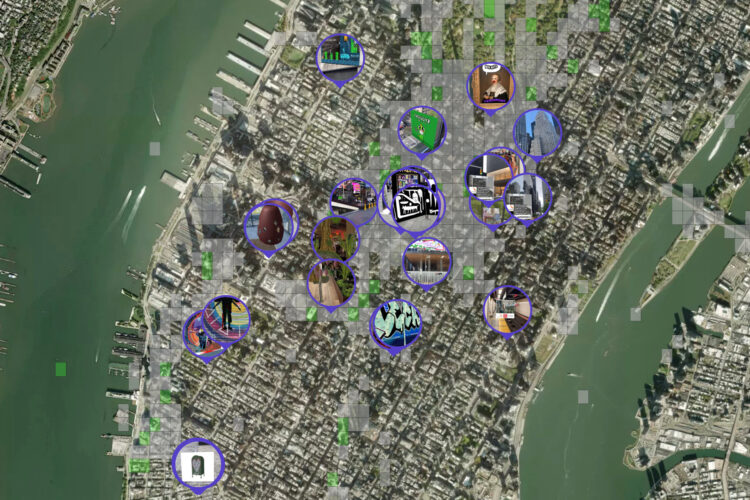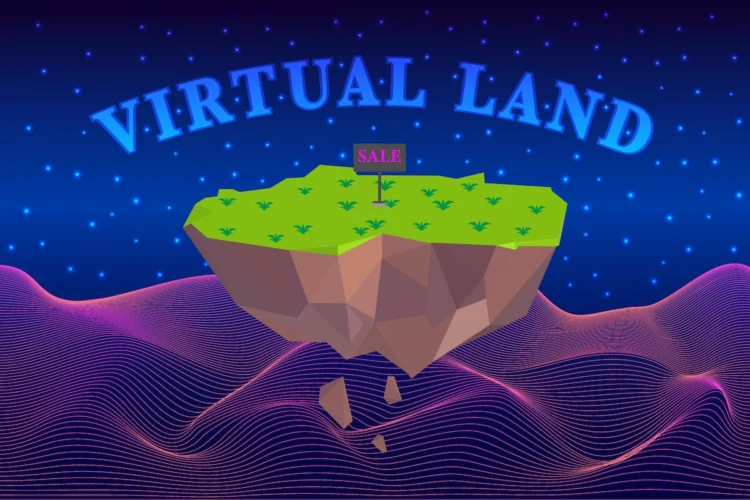The Metaverse is an expanding virtual world, where people can create and explore their own unique, digital versions of reality. It is a place for people to express their creativity and interact with others in a world that is constantly growing and evolving. It is similar to the internet, but instead of web pages, users immerse themselves in these virtual worlds. In this article, we will explain what the Metaverse is and provide an overview of virtual land for sale in the Metaverse.
The term ‘Metaverse’ was originally coined by Neal Stephenson in his 1992 science fiction novel Snow Crash. It refers to a shared 3D space that exists both within our physical world as well as within cyberspace. The Metaverse land for sale allows users to interact with each other through avatars in immersive 3D environments or ‘worlds’ which are hosted on powerful servers around the globe. Users are able to customize their avatars with clothing, accessories, and animations which can be purchased from online stores as well as earned through playing games or completing tasks within these virtual worlds.
Benefits of Buying Virtual Land in the Metaverse

As the Metaverse continues to evolve, virtual land is one of the most compelling investments for individuals or companies looking to reap the many benefits of owning property in a digital world.
1. Increased Accessibility to Content Creation Platforms
Buying virtual land provides access to powerful content creation platforms that are not available with traditional real estate investment. Individuals or companies can create immersive experiences within their own private space, such as constructing a 3D world with their own buildings and objects. Furthermore, these platforms enable users to customize their spaces in accordance with pre-set guidelines set by developers or even design their own game worlds from scratch – an opportunity that would otherwise be unavailable outside of the Metaverse.
2. Opportunity for Creators to Generate Revenue Streams Through Leasing or Selling Virtual Property
Owning digital property also offers unique opportunities for content creators and entrepreneurs alike – including generating revenue streams through leasing or selling virtual property within the Metaverse marketplace. By forming strategic partnerships with developers who are looking for content creators or players who need virtual space, these individuals can build a profitable business model by renting out their digital real estate assets.
How to Buy Virtual Land in the Metaverse?

Virtual land has become a popular asset for many investors, as the metaverse is becoming an increasingly attractive field of investment. The metaverse is a virtual world made up of interconnected virtual environments that are used for both business and entertainment purposes. It is the perfect place to purchase virtual real estate, and those interested in doing so should take the time to research their options before making a purchase.
A great first step in purchasing virtual land in the metaverse is to research available platforms and properties offered for sale. There are numerous online marketplaces where you can find listings of all types of properties, from residential lots to commercial buildings. Additionally, some developers offer their own platform-specific marketplace where they list their own properties for sale or rent. You should also check out sites such as Second Life Marketplace where you can buy property directly from other users who may be selling it at a discounted price or with special offers attached.
Once you have identified the right platform and property type that suits your needs and wants, it’s important to understand different types of ownership and terms & conditions before making any purchases.
Factors Impacting the Sale of Metaverse Land

Before investing in metaverse land, it’s important to know how the supply and demand for these plots are driven by different factors. Factors that can impact the sale of virtual land include:
- Competition between developers: Competition between developers drives up prices as metaverse companies compete for limited plots of virtual real estate.
- User accessibility: Metaverse owners must ensure their plot is accessible and visually appealing to users. Poor user accessibility often impacts demand and therefore prices.
- Economic stability: Economic stability affects citizens’ spending habits and so impacts the affordability of virtual plots. Weak economic conditions have previously caused prices to dwindle as consumers look for cheaper alternatives to maintain their plot fees.
- Size and location: Like real estate on Earth, plot size and location determine its desirability – smaller or isolated plots tend to be less expensive than larger ones in central hubs. Additionally, landlords may charge higher fees for prime locations overlooking bodies of water or other desirable scenery that add artistic value to their lands’ appeal.
Potential Challenges of Purchasing Metaverse Land

Purchasing land in the metaverse can be a complicated process that is fraught with potential pitfalls. Investing in this unique market presents unique risks and opportunities. Potentially, buyers may face numerous challenges that include:
- Technical Limitations: It is suggested to verify the technical capabilities of any metaverse platform before making an investment as not all platforms are evenly developed.
- Non-Transferable Assets: Ownership of virtual land is often limited to the digital platform where it resides and cannot be transferred between different platforms or digital universes.
- Regulatory Uncertainty: Understanding any regulations or legal restrictions on owning virtual property can be difficult. The legal landscape surrounding these properties can change quickly, so it’s wise to draw up an agreement that contains provisions for further changes in the law.
- Not Physical Assets: Unlike physical real estate, purchasing virtual property does not bring tangible benefits such as rental income or tax deductions unless a rental program exists within the specific platform you’re investing in.
- Lack of Title History: Depending on which system you use to purchase your land, you may not have access to a title history like you would with classic real estate purchases; therefore it is important to thoroughly research any prospective investments before committing your funds.
Conclusion
The sale of Metaverse Land has opened up a new world of possibilities for investors, developers, and entrepreneurs alike. With the potential to create entire virtual worlds and benefit from the increased value of owning digital land, there is no doubt that many people have taken advantage of this opportunity. By utilizing blockchain technology to secure ownership and provide a secure platform for transactions, Metaverse Land provides an innovative solution that can be utilized in numerous different ways.
With its potential to revolutionize the way we interact with our digital world, it’s no wonder why Metaverse Land is such an attractive option for those looking to make investments or build businesses within this new frontier.







